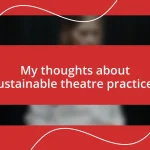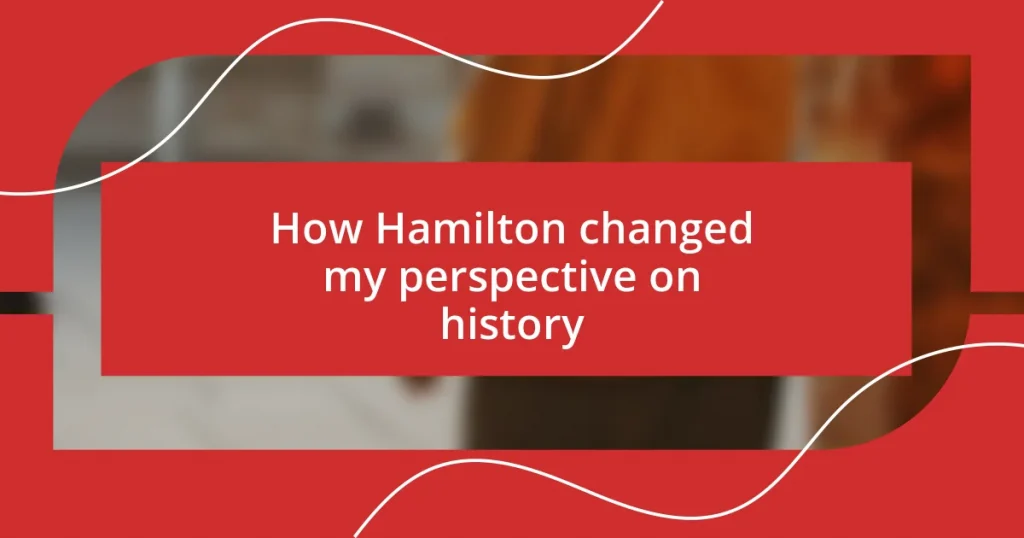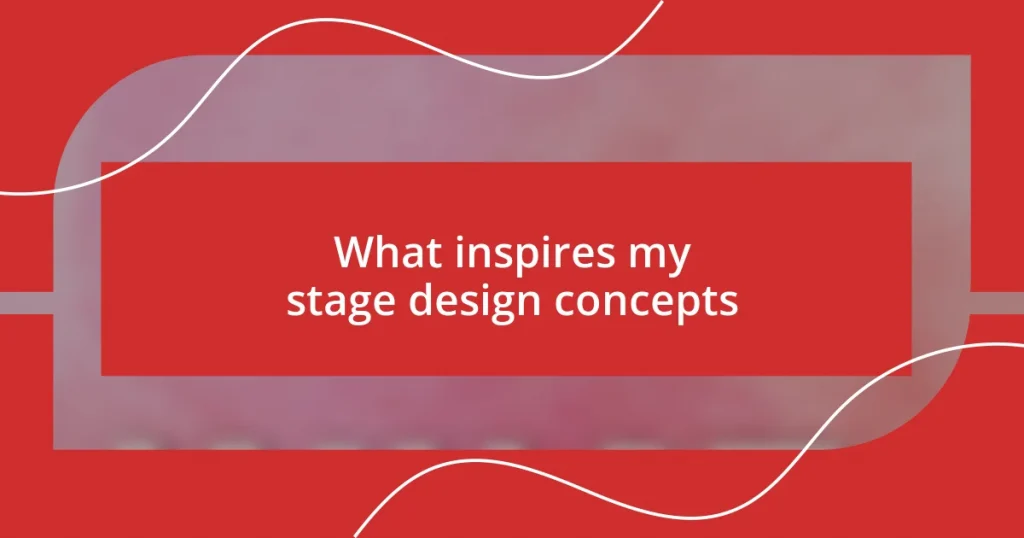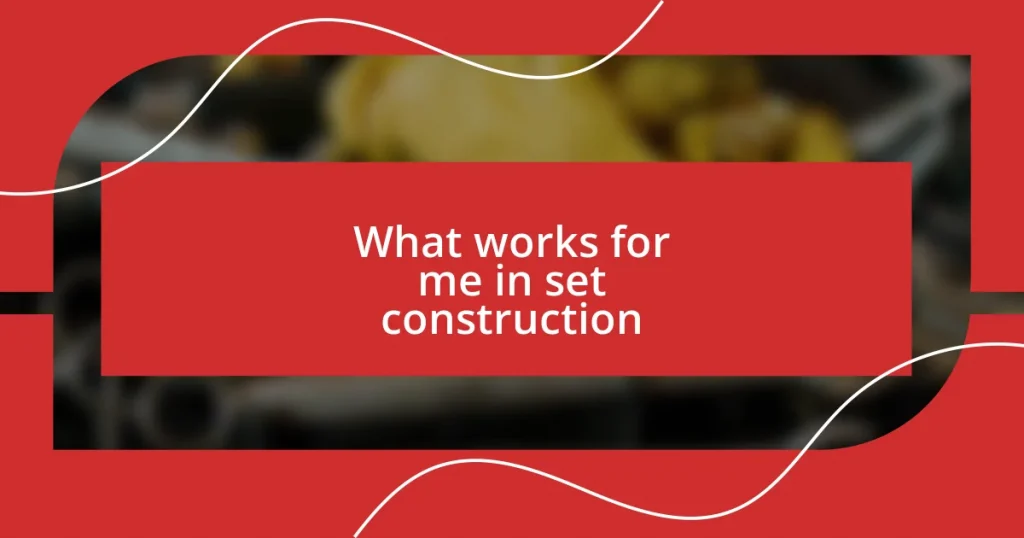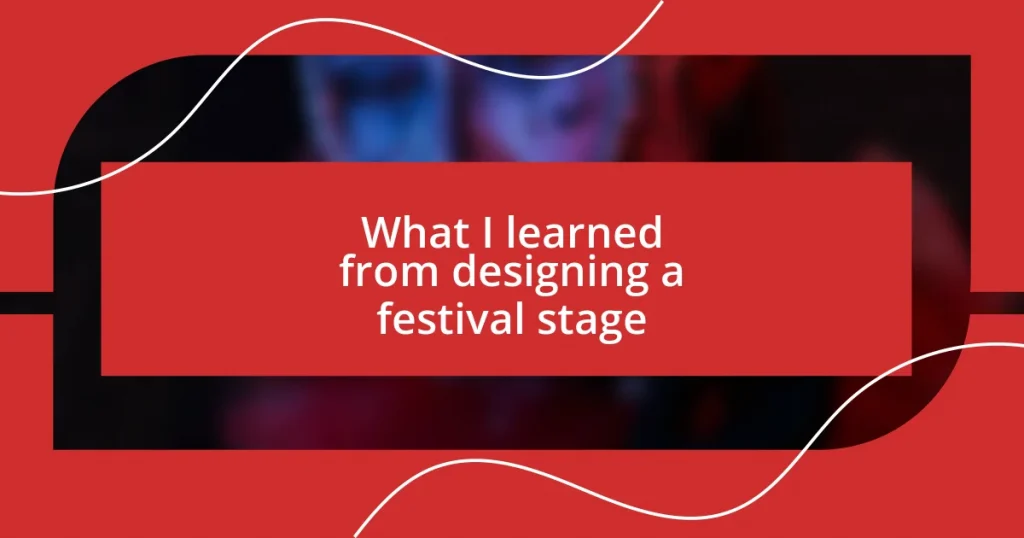Key takeaways:
- Hamilton’s life illustrates resilience and ambition, transforming his personal struggles into foundational policies for a young nation.
- The musical “Hamilton” offers a fresh perspective on history, highlighting emotional storytelling and the relevance of historical figures’ experiences.
- Engaging with Hamilton’s lessons emphasizes the importance of ambition, lifelong learning, and navigating relationships amidst conflicts.

Understanding Hamilton’s Historical Context
To really grasp Hamilton’s impact, it’s essential to consider the tumultuous backdrop of late 18th-century America. Imagine a fledgling nation, grappling with the aftermath of the Revolutionary War, trying to unify the diverse states under a single banner. It was a time filled with uncertainty, and Hamilton’s ideas stood out as a beacon of hope and structure amidst the chaos.
When I first learned about the financial struggles facing the new republic, I was struck by how Hamilton’s vision for a strong central government and a national bank was revolutionary. He understood that for the country to thrive, it needed a solid economic foundation, which is something I often take for granted in today’s world. Isn’t it fascinating how one man’s strategies could alter the fate of an entire nation?
As I delved deeper, I was moved by Hamilton’s personal journey, from an orphaned immigrant to the chief architect of American finance. How did he overcome such adversity? His resilience and ambition not only shaped his own destiny but also provided a blueprint for a nation forging its identity. It’s incredible to think about how his life’s challenges deeply informed his policies and ultimately changed the course of history.

Exploring Hamilton’s Character Development
Hamilton’s character development is as dynamic as the nation he helped to shape. As I explored his life, I discovered layers of complexity in his personality. Initially, he came across as ambitious and perhaps ruthless, willing to go to any lengths to realize his vision. Yet, this ambition arose from a place of deep insecurity and a fierce desire to prove himself. It was humbling for me to recognize that even great historical figures wrestle with their demons and triumphs.
- Hamilton’s self-doubt fueled his drive for success, showcasing how our struggles can carve out our paths.
- He displayed a mix of idealism and pragmatism, balancing his dreams with the harsh realities of his time.
- His relationships, particularly with figures like Jefferson and Burr, highlight the tension between personal ambition and loyalty.
Understanding these facets of Hamilton’s character shifted my perception of leadership. His journey reminded me that true strength often emerges from vulnerability, a concept I now reflect on when considering the challenges in my own life.

Lessons from Hamilton’s Life Choices
Hamilton’s life choices illustrate profound lessons about ambition and sacrifice. I often think about the risks he took to advocate for a centralized national bank, knowing well that it might alienate him from powerful allies. In my own experience, I’ve faced moments where pursuing a passion meant stepping out of my comfort zone and risking relationships. This echoes Hamilton’s journey. His willingness to prioritize what he believed was best for the nation over personal comfort is a lesson in courage that still resonates with me.
Moreover, Hamilton’s focus on education as a tool for self-improvement speaks to me deeply. He valued learning and used it to propel himself from humble beginnings. This has prompted me to reflect on my own educational pursuits. I remember a time in college when I chose to take on challenging subjects that didn’t seem immediately beneficial. Ultimately, that dedication to learning has opened doors in ways I couldn’t have imagined. Hamilton’s choices remind us that our educational journeys can shape our futures in remarkable ways.
Lastly, Hamilton’s tumultuous relationships showcase the delicate dance of personal and political loyalty. His rivalry with Jefferson often left me contemplating the nature of conflict—both in history and my life. I have experienced personal rifts that stemmed from differing visions, and I learned the importance of navigating these challenges constructively. His life encourages me to manage relationships thoughtfully, even when disagreements arise, as every choice we make can lead to greater insight and understanding.
| Lesson | Hamilton’s Choice |
|---|---|
| Ambition Over Comfort | Advocated for a national bank despite risks |
| Value of Education | Prioritized self-education from an early age |
| Conflict Resolution | Managed complex relationships with leaders like Jefferson |
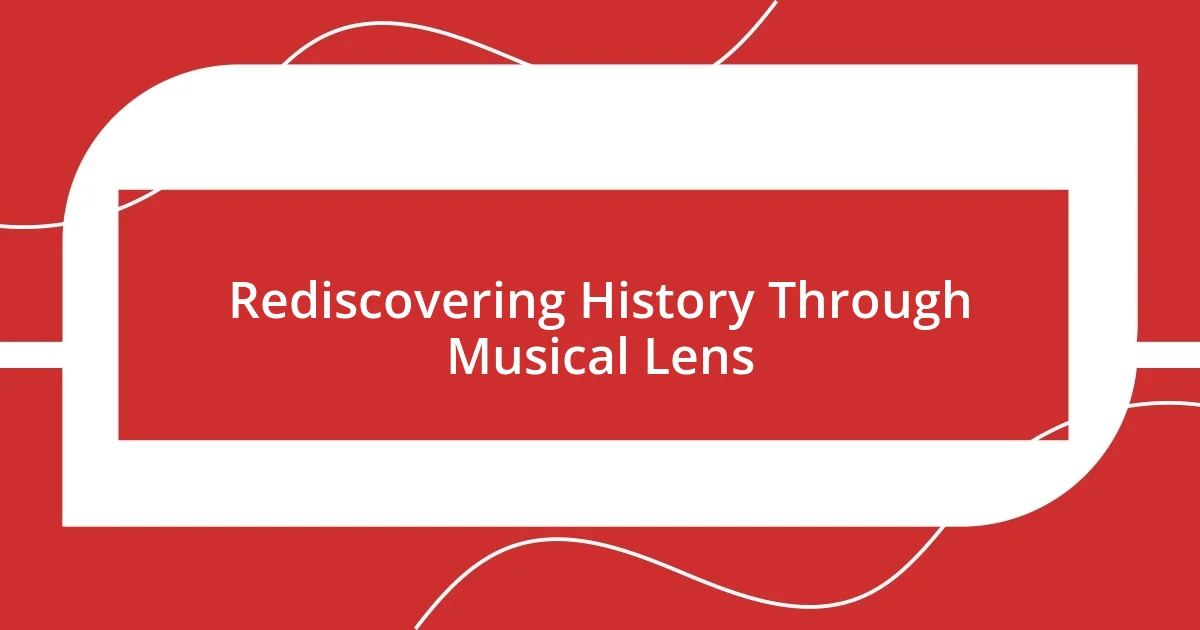
Rediscovering History Through Musical Lens
In my journey of rediscovering history through the musical lens of “Hamilton,” I realized how powerful storytelling can reshape our understanding of the past. The vibrant melodies combined with poignant lyrics make the historical narrative feel alive, almost like a dance through time. I often find myself humming the tunes, which brings me back to pivotal moments in American history, not merely as dates and events, but as emotional stories filled with triumphs and trials.
Listening to the musical, I’ve become acutely aware of how history can be interpreted in diverse ways. For instance, I remember my initial indifference toward the Founding Fathers, viewing them as distant figures in dusty textbooks. But as I listened to Lin-Manuel Miranda’s portrayal, I found myself connecting with their aspirations and struggles. Who would have thought that a hip-hop-infused retelling could open my eyes to the complexities of these influential personalities?
The combination of historical facts and modern music compelled me to rethink my own experiences with learning. I remember attending a performance where the audience erupted in applause during a particularly poignant number about sacrifice and legacy. It struck me that, by sharing these stories in an engaging format, we not only preserve history but foster a deeper emotional connection to it. It left me pondering: how often do we miss the vibrancy of our past because we allow it to be confined to pages? Through Hamilton, I learned that history isn’t something we just study; it’s a narrative we live and feel.

Applying Hamilton’s Lessons Today
Applying Hamilton’s lessons today involves an active engagement with our own ambitions and the sacrifices we’re willing to make. I reflect on my own career choices and the times I’ve had to push against the status quo. It reminds me of the leap Hamilton took by pioneering the national bank, despite the backlash he faced. Have you ever chosen to stand up for your beliefs, even when it felt uncomfortable? I know I have, and those moments of courage have reshaped my path in surprising ways.
One lesson that resonates with me is the importance of education as a lifelong journey. When I decided to take up a new language a few years ago, it felt daunting. But I remembered Hamilton’s relentless quest for knowledge, often with little support. This dedication to learning, even when it comes with challenges, becomes a tool for personal growth. Isn’t it incredible how investing in ourselves can lead to new opportunities? Each time I practice that language, I connect more deeply with coworkers who share their culture with me, enhancing both my worldview and my professional relationships.
Navigating relationships, much like Hamilton did with Jefferson, is another crucial takeaway. I once found myself in a heated debate with a close friend over differing political views. At first, I was tempted to withdraw, but I remember Hamilton’s ability to find common ground even amid contention. So, I took a breath and approached the conversation with curiosity. What I discovered was enlightening—while we saw the world differently, our values aligned in many areas. That experience taught me that acknowledging our differences can lead to richer dialogues and deeper understanding, just as it did for the country’s founding leaders.
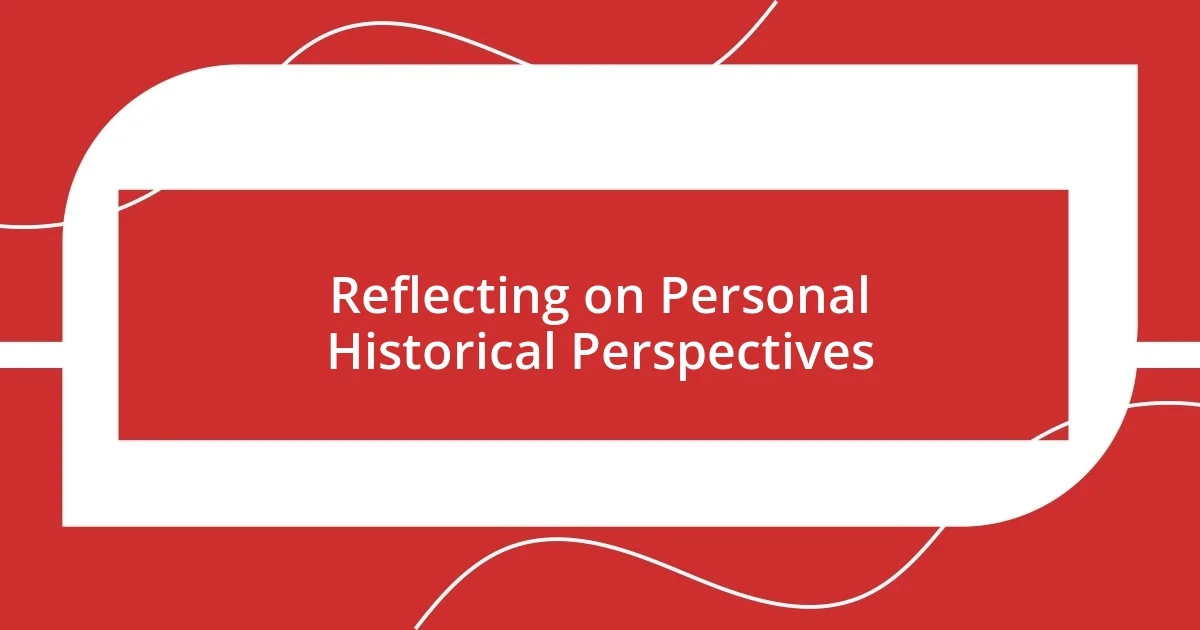
Reflecting on Personal Historical Perspectives
Reflecting on my personal historical perspectives has been quite a transformative journey, especially in light of how “Hamilton” challenged my previous views. Growing up, I often viewed history as a mere sequence of events—facts to memorize for tests rather than a tapestry of human experiences. It wasn’t until I began engaging with the musical that I recognized the emotional weight behind each moment. Have you ever felt history come alive in your imagination? I certainly did when I realized how much passion and conflict shaped the lives of those who came before us.
One striking moment for me was during a deep discussion with a friend about the legacy of Alexander Hamilton. We both uncovered layers of our understanding and, unexpectedly, enhanced our appreciation for the struggles leaders faced while shaping our nation. Reflecting on the stakes they endured made me reconsider my own life decisions. Isn’t it fascinating how a single narrative can spur introspection about our own stories? The context and motivations showcased in “Hamilton” remind me that our choices, too, are influenced by the historical threads woven around us.
Moreover, I’ve come to appreciate how my perception of certain historical figures has shifted significantly. I used to see them as unapproachable symbols of a distant past. Now, I view them as flawed individuals striving for greatness in challenging times. This revelation makes history feel relatable and real. Have you ever found relatability in a figure you once admired from afar? For me, connecting with Hamilton’s ambition and vulnerability has inspired me to confront my challenges with renewed vigor. Reflecting on these perspectives not only deepens my understanding of history but also enriches my personal narrative.




